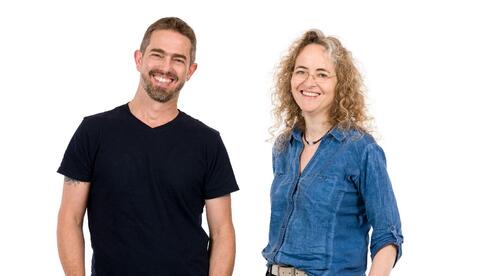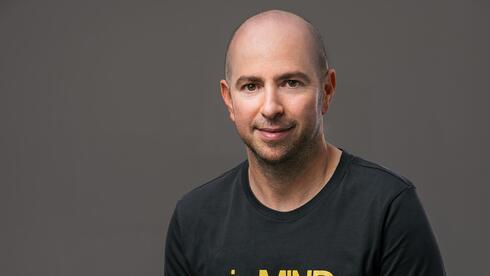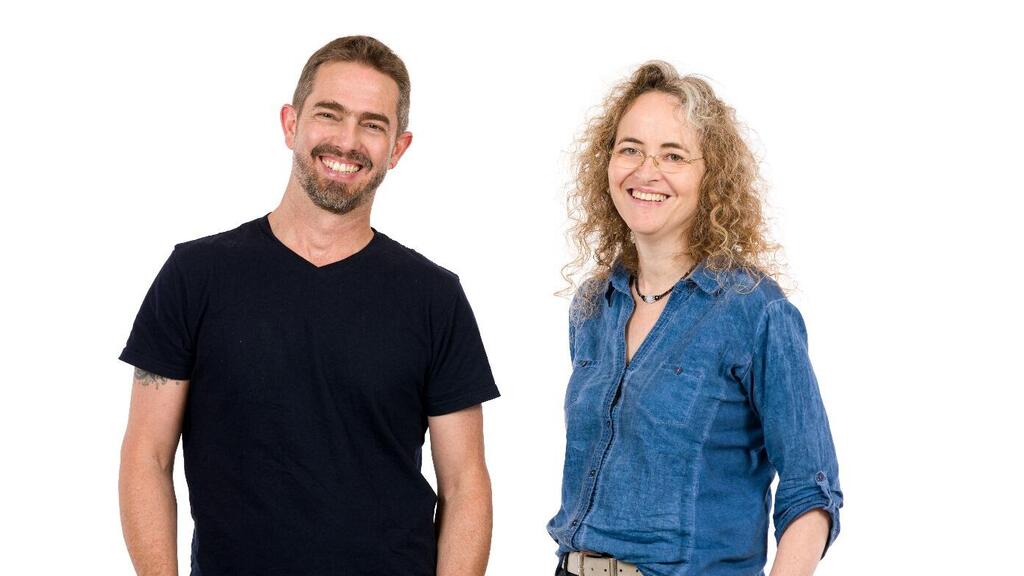
Boarding Pass
HarvestR: “The world needs us to succeed in our mission.”
The company has raised a total of $400,000 to take on legacy agrichemical companies and the $280 billion market.
“Global population is on the rise, climate change is causing heat waves, drought, and crop loss. Roughly 30-45% of fruit, vegetables, and crops go to waste, amounting to 1.3 billion tons of food wasted every year. That is an equivalent of $940 billion of waste,” said HarvestR.
Having listed some of the issues that are faced in the agricultural industry, it’s no surprise a company like HarvestR would arise. The company tackles food security by treating crops, fruit, and vegetables externally with non-GMO, RNAi-inducing mechanisms.
“Legacy agrichemicals lose effectiveness and when used can cause pollution, environmental damage, and health problems,” the company continued. “The need for effective, sustainable, and environmentally friendly crop protection solutions is at an all-time high. The world needs us to succeed in our mission.”
You can learn more about the company below.
Company Name: HarvestR
Sector: Agritech
Product/Service description:
Our mission is to improve global food security and sustainability by inhibition of fungal pathogens with tailor-made, environmentally friendly, cost-effective bio-fungicides.
We do this by treating crops, fruit and vegetables externally with non-GMO, RNAi-inducing mechanisms.
Founder Bios:
Gal Admati, CEO and founder: With over 15 years of experience in the life science industry, he is a multi-disciplinary technological manager with a demonstrated history of working in the medical device and agrifood sectors. Skilled in strategy, business development, commercial operations, marketing and sales, intellectual property development, team management, quality assurance and regulatory affairs, production and transfer to production techniques, and research and development.
Since 2022 Gal has led venture creation activities at InNegev Incubator, has founded two companies, and is leading an Agritech company in the field of food security.
Year of Founding: 2023
Last Investment Round: $400,000
Last Investment Stage: Pre-Seed
Date of Last Investment: December 2023
Total investment to date: $400,000
Investors (leading and all): InNegev Incubator with support from the Israel Innovation Authority.
Current number of employees: 2
Open positions: Coming soon
How was the idea born?
The idea was born as part of a venture creation process that Gal led with InNegev incubator. As part of the process, multiple technologies were evaluated, including this one, which was developed by Dr. Noam Alkan (Volcani) and Prof. Robert Fluhr (Weizmann). The technology stood out as an innovative, flexible technology platform using the building blocks of nature to provide sustainable, non-toxic solutions to promote food security.
Following a due diligence process with the Volcani and Weizmann institutes, and after forging a good relationship with the researchers, we licensed the technology for use in agriculture and established the company.
What is the need for the product?
Global population is on the rise, crop losses are between 30-45% from farm to fork, legacy agrichemicals are detrimental to the environment and are being removed from approved lists by regulatory authorities, extensive use also creates biological resistance and renders current agrichemicals solutions obsolete within several use cycles. The current situation is unsustainable and the world needs sustainable, effective, and environmentally friendly solutions to reduce waste, improve yield, and promote food security.
How is it changing the market?
Industry-standard solutions mainly rely on agrichemical products to treat crops and fruit and vegetables following harvest with the goal of improving storage and shelf life. Yield loss can be due to a variety of causes including climate-related stresses such as heat and drought and by a wide range of pests and pathogens such as beetles, nematodes, bacterial, viral, and fungal-based organisms. Legacy agrichemicals are invariably detrimental to the environment and run the risk of losing effectiveness over prolonged use periods. Various biological solutions exist however with limited effectiveness to date. There are also GMO (Genetically Modified Organism) based crops, with genetically enhanced resistance methods “built in” to the crops, albeit with limited rollout to date.
The high loss rate due to climate change and agrichemical resistance, necessitates new methods and methodologies of treatments. One of these options are SIGS (Spray Induced Gene Suppression), in which the crops are treated with a double-stranded RNA (dsRNA) based product that penetrates the pathogen cells and specifically targets the pathogen and the pathogen alone, in our case fungal pathogens. The dsRNA causes interference in the organism's protein creation mechanism and effectively disrupts a pre-chosen metabolic pathway, which is unique to the target organism. One can think of it as a “vaccine for crops”. No changes are made to the crop’s genome, this is not a GMO product. This kind of solution has been on the drawing board for several years and is only now being introduced to the market.
How big is the market for the product and who are its main customers?
The market is huge. The agrichemical market is estimated at roughly $280 billion per year. The global crop protection market is estimated at $45-$100 billion in 2024 with a CAGR of 4.6-5.6%. Fungicides alone account for $16-$17 billion with a CAGR of 4-4.9%.
Does the product exist already? If not - at what stage is it and when is it expected to hit the market?
The product is in advanced development stages, we have already shown proof of concept and intend to complete commercial setting testing within eight months. We expect to initiate registration within 12 months and have the product ready for the market within 2 and 1/2 years.
Who are the main competitors in this sector and how big are they?
Main competitors are legacy agrichemical manufacturers, most with a global presence, such as Bayer, Syngenta, Greenlight Biosciences, and more.
What is the added value that the founders bring to the company and the product?
Gal Admati, Founder and CEO, is a seasoned technological manager experienced in growing R&D to commercialization, experienced in life sciences, technological development, transfer to production and scale up activities and commercialization.
Prof. Robert Fluhr, researcher, completed his Ph.D. at the Weizmann Institute and post-doctoral work at the Rockefeller University in the area of plant molecular biology. He has tutored over 40 doctoral candidates and post-doctoral fellows. He serves as the Head of the Life Science Core Facilities and is the Director of the Grand Family National Center for Personalized Medicine at the Weizmann Institute.
Dr. Noam Alkan, the researcher, graduated from the Hebrew University in plant pathology and microbiology. Since 2013, serving as a group leader at Volcani Research Center, and since 2022 has served as the head of the Postharvest Science department at Volcani Center.
Dr. Yael Bar-Lavan R&D manager, has a proven track record as a Principal Investigator and research leader, and has successfully led groundbreaking projects in multiple areas, including the discovery of neuroprotective plant extracts and the development of innovative plant-based products. Yael holds a Ph.D. in Life Sciences.
What will the money coming in from the round be used for?
HarvestR is an incubator company under the InNegev Incubator in southern Israel supported by the IIA. We are currently focused on R&D, and funds go to financing R&D-related activities including product development, process development, lab testing and equipment, and initial market validation.
In the "Startup Boarding Pass" section, CTech will cover the (relatively) small investments made in companies during the early stages of their existence - and the entrepreneurs and startups who have not yet had the opportunity to reveal their stories to the world. Please use the linked form and fill it out according to the guidelines. This form is intended for startups raising between $500,000 and $3 million from venture capital funds, angels, or official grants from Israeli and foreign institutions. If relevant, someone at CTech will be in touch for follow-up questions.














